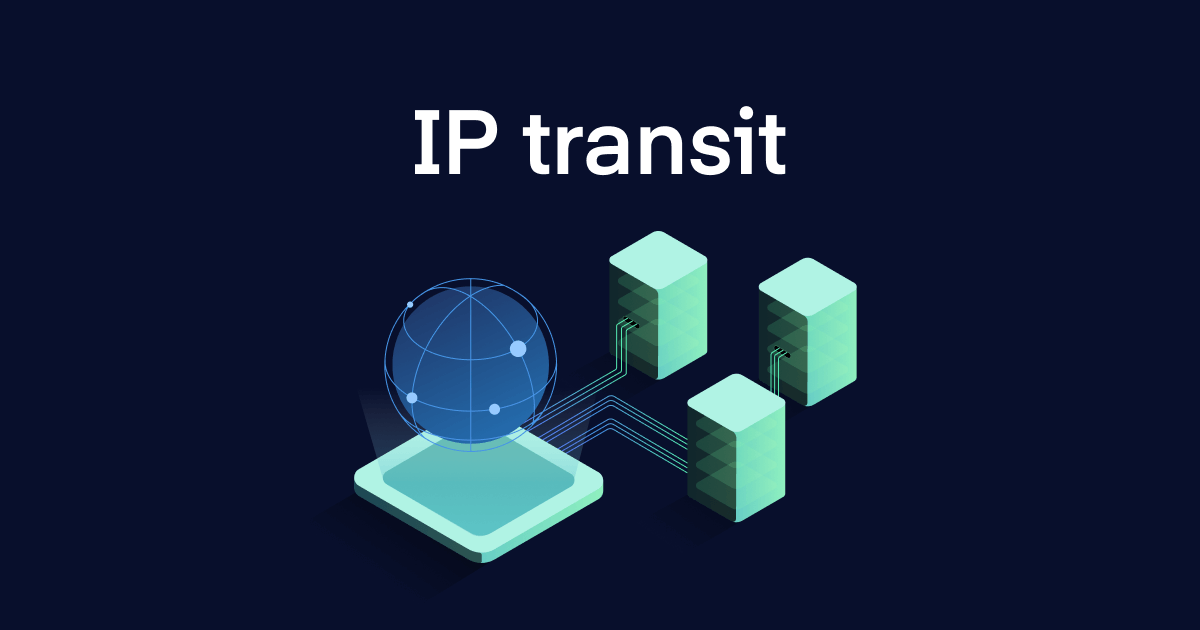In the ever-changing world of internet connectivity, businesses big and small rely on IP transit to ensure seamless access to the digital world. IP transit is at the heart of all modern communications networks, from accessing cloud-based services, to powering platforms for ecommerce. In this post, we’ll look at the fundamentals of IP transit, the function of IP transit providers, the array of services they offer and how companies can manage IP transit pricing and costs.

IP transit, sometimes called internet transit is the method of allowing network traffic cross or “transit” through a network, enabling users to connect to internet. IP transit providers are firms that have the infrastructure to transfer data packets across networks. These providers are crucial in ensuring that internet connectivity remains effective and reliable for companies and users.
There are many IP transit options available to businesses. Some providers offer basic transit services that provide access to the Internet without any extra features or customization. Others provide more advanced services including managed IP transit, which comes with additional monitoring, support, as well as security options. The kind of service you choose is dependent on the needs and requirements of your business.
One of the most important aspects to be considered by businesses when choosing the right IP transit service provider is the cost. Pricing for IP transit may be affected by factors like bandwidth requirements, geographical location, and service-level agreements. It is important for businesses to comprehend the different pricing models and cost structure offered by providers in order to make informed decisions and benefit the most out of their investment.
In addition to pricing, businesses should also consider the reliability and performance of the IP transit provider. Carrier grade networks with backbone connectivity at 100G and 400G can provide the reliability as well as the scalability, reliability and scalability required for mission-critical services and applications. Automating the entire process from start to finish improves efficiency and creates an effortless experience for users.
IP-Access offers a customizable, flexible solution for companies that want to improve their networking connectivity. This connectivity solution is ideal for companies with older systems or specific requirements. Businesses can modify the connectivity to meet their requirements by using IPv4/31or IPv6/127, as well as other transfer networks available as standard.
When it comes to internet access, IP-Access also offers the basic DDoS protection against volumetric attacks, providing an added layer of security for companies and their networks. This helps protect against downtime and potential loss of revenue due to cyber threats.
Inter.link Portal provides a convenient cost-effective and efficient method to gain access to IP services to all companies. Businesses can set up IP Transit in just minutes with a few clicks. You can select your preferred locations, bandwidth requirements, port speed and duration of contract. This simple process can save time and resources and allows businesses to concentrate on their primary business.
In the end, IP transit plays a essential role in the power of the modern internet, enabling businesses to connect and communicate with other businesses around the world. If you know the basics of IP transit, the role of IP transit providers, the variety of services they offer, and how to negotiate cost and pricing, businesses are able to make informed decisions and ensure that they have the connections they need to prosper in the current digital landscape. IP Transit is the core of modern communication networks, be it for accessing cloud-based services, providing power to platforms such as ecommerce, or connecting remote offices.

